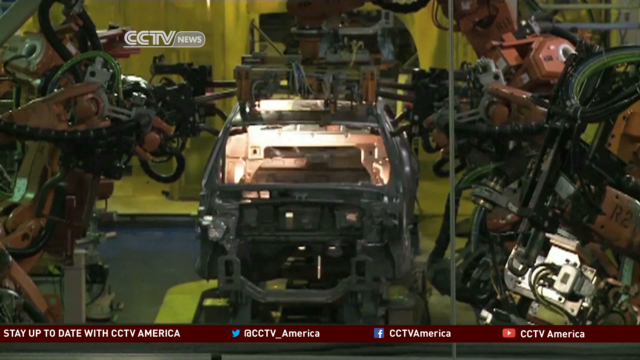A restoration of full diplomatic relations between the U.S. and Cuba could have a significant economic impact on the Cuban economy. Experts said the U.S. would benefit from the thawing of relations too, but they said President Obama’s decision to lift restrictions was more about foreign policy and less about economics. CCTV America’s Shraysi Tandon reported this story from New York.

Wednesday marked a historic day for both Cuba and the United States. Cubans crowded around their TV sets and erupted in applause following the announcements by Obama and Castro that they were restoring diplomatic relations which will have significant political and economic impacts.
For decades, America’s economic sanctions against Cuba have been a thorn in bilateral relations. Many Cubans blamed the U.S. for stifling economic development and depriving the nation of growth and prosperity.
On Wednesday, the prospects of exports, jobs and new money brought hope to the island nation. While Obama can ease some restrictions, only Congress can end the trade embargo.
If that happens, and with the two countries poised to resume trade, many U.S. businesses could benefit.
“Many of the goods flowing into the country flow from Spain, some from Canada as well. So you could think about manufactured operations, such as American cars, re-opening dealerships in the country over time. A range of manufactured goods there and obviously services like banks could be down there as well,” New York University business Professor Joseph Foudy said.
Prior to the Cuban revolution in the 1950s, U.S. farmers did a lot of business with Cuba, providing rice, beans, and other agricultural commodities. With Cuba importing nearly 80 percent of its food, U.S. farmers could see an increase in rice and bean exports again.
The Peterson Institute for International Economics estimated exports of U.S. goods to Cuba could reach nearly $4.5 billion per year, a significant increase from the $360 million last year.
The decision to lift restrictions on Cuba heralds a new era for U.S.-Cuban relations, but some experts said the diplomatic thaw will not be without consequence.
“Anytime a new market opens up, there are political risks and legal risks. There is foreign investment in Cuba today, but it’s relatively limited, and so you’re operating in an environment of some uncertainty. But as we’ve seen in socialist economies that have opened up and reformed, most famously China, when you’re poised for growth and the economy is growing at 5 or 10 percent a year, we think the opportunities will far outweigh the uncertainties for any company,” Foudy said.
For many, the most eagerly awaited change is the removal of travel restrictions on U.S. citizens, which is a change that could have a dramatic impact on Cuba’s tourism industry, allowing millions of visitors to pump U.S. dollars into Cuba’s economy.
New ties allow Cuban Americans to more easily send funds to relatives
President Obama’s move to restore relations with Cuba would allow Cubans living in the U.S. to more easily send money to relatives and friends on the island.
The new changes will not affect how much money authorized travelers can bring into Cuba, which remains at $3,000.
For years, U.S. residents have been pumping money into Cuba’s ailing economy. Remittances reportedly reached almost $3 billion in 2013. Those in the U.S. who are opposed to making it easier to transfer money, see it as a way to perpetuate the Cuban government.
According to a local survey of those between the age of 20-49, young people are more likely to send money. In contrast, the majority of those receiving money in Cuba are older than 50, and most of them are women.
CCTV America’s Nitza Soledad Perez reported this story from Miami.

 CGTN America
CGTN America
